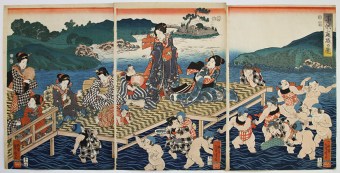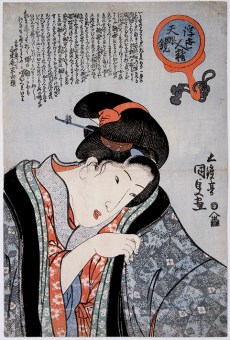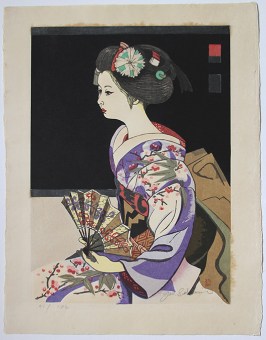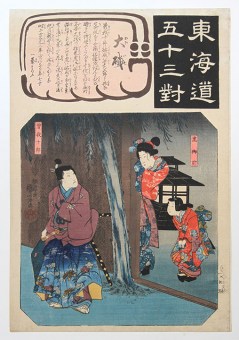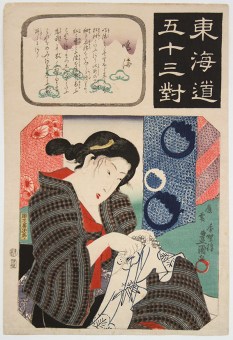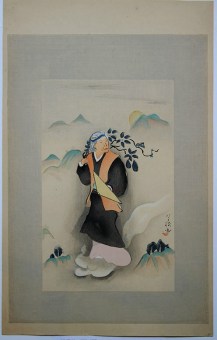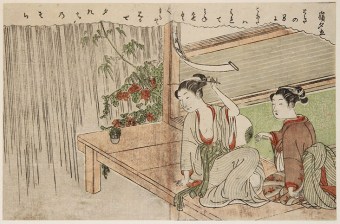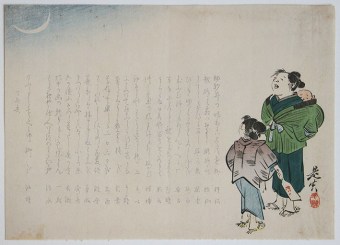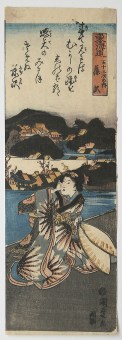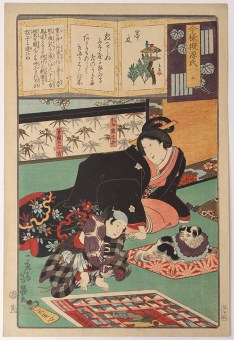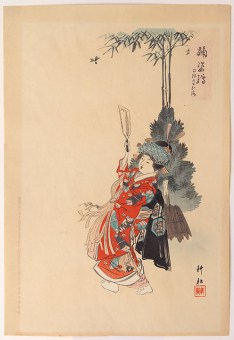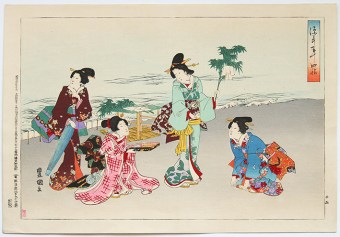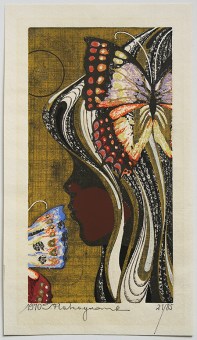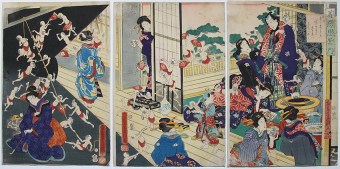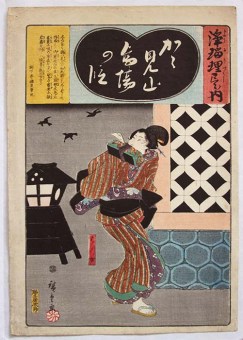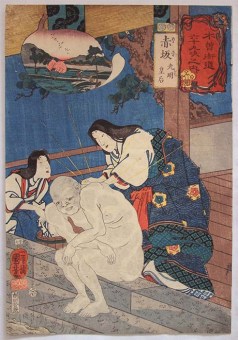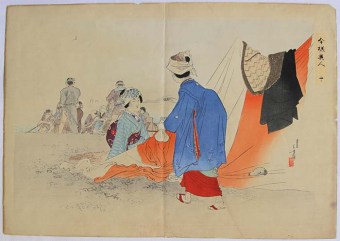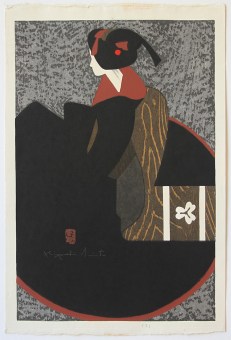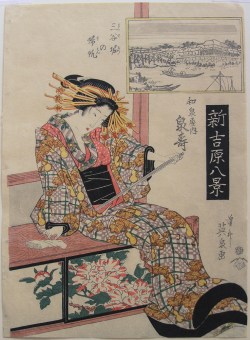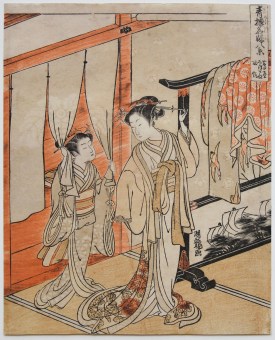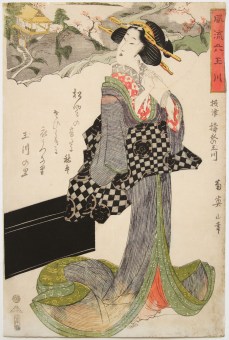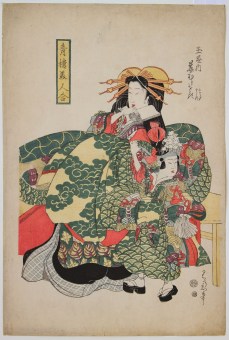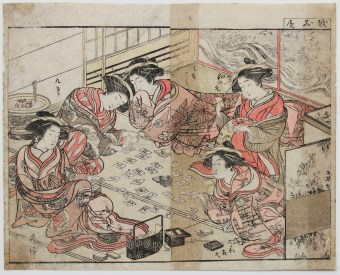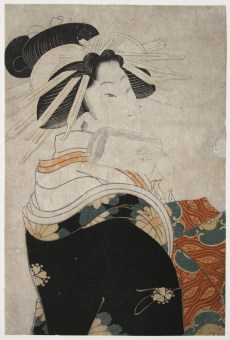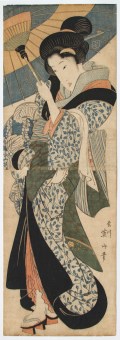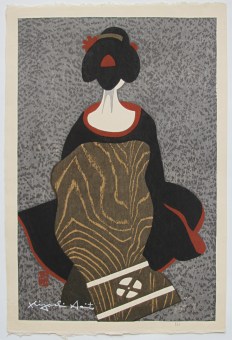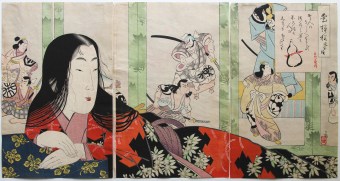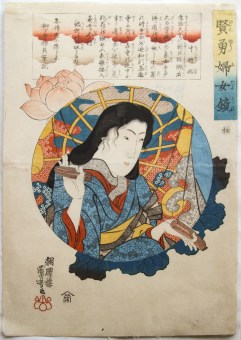Women and Children
Bijin-ga prints were not merely intended as realistic representations of women but also served as objects of desire and fantasy for the viewers. They were highly sought after by collectors and were considered a form of visual entertainment during the Edo period.
Artists like Kitagawa UTAMARO, Suzuki HARUNOBU, and Torii KIYONAGA were renowned for their bijin-ga prints and played a significant role in popularizing the genre. Their works showcased a delicate and refined style, often characterized by intricate details, vibrant colors, and a focus on the beauty and allure of the female subjects.
Bijin-ga prints continue to be appreciated and admired for their aesthetic appeal and cultural significance. They provide insights into the fashion, ideals of beauty, and social dynamics of the Edo period in Japan.
Kodomo niwa-asobi no zu (Children's games in the garden)
(180)
Kaki no Asago (obstinate like a morning glory on a fence)
(1941)
Maiko
(1968)
Ôiso: Tora Gozen and Soga no Jûrô
(F127)
Narumi: Woman Doing Arimatsu Shibori Tie-dying
(F201)
Yamanba (Woman from the Mountains) from the Play Komochi Yamamba
(1962)
Mine yudachi (Rain Shower at the Mountain Top)
(F316)
Mother with children
(F360)
Fujisawa
(2093)
Hahakigi
(2111)
Hane no Kamura
(681)
Nr. 25 from The Fifty-four Chapters of the Genji monogatari
(G586)
Girl and Butterflies
(G454)
Zen'aku kokoro no annai (The Good and Evil Influences)
(I002)
worldwide shipping
Kagamiyama karasuba no dan, Hatsu-jo
(I456)
Akasaka: Empress Kômyô
(I457)
worldwide shipping
Two women on the beach, fishermen are in the background
(I565)
Maiko Kyoto (F)
(J449)
From the Rice Fields
(J450)
The courtesan Senju from the house of Izumiya
(J678)
Courtesan with her Kamuro
(J712-KD209)
Bi-jin
(J775)
Portrait of a Courtesan and Kamuro
(J774)
Beauties of the Yoshiwara District
(K081-F028)
Courtesan
(K080-F170)
Man lifting the dress of a woman
(K251-F164)
Geisha Returning from Bath House
(K250-F047)
Maiko (3)
(K243-L002)
Beauty of the Enpo Period (1673-1681)
(K183-F151)
Kenyû fujo kagami
(K178-F062)



